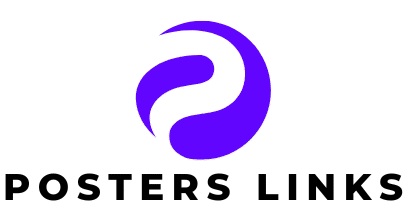Search Engine Optimization (SEO) has always been a dynamic field, with algorithms constantly evolving and new technologies changing the way we approach digital marketing. As we move into 2025, SEO continues to be a critical element for businesses aiming to increase online visibility, drive organic traffic, and remain competitive in a crowded digital marketplace.
This article explores the key strategies and techniques that will define successful SEO in 2025, providing actionable insights for businesses and digital marketers to implement. From optimizing for voice search to prioritizing user experience, these trends will guide the way we approach SEO in the coming years.
1. The Importance of User Experience (UX) in SEO
As search engines evolve, they are placing increasing emphasis on user experience (UX) as a ranking factor. Google’s algorithms, for example, now prioritize websites that deliver fast loading times, mobile-friendly designs, and seamless navigation. This shift in focus means that SEO is no longer just about keyword optimization but also about ensuring that visitors have a positive, engaging experience on your site.
Core Web Vitals and Page Experience
One of the most significant updates in recent years has been the introduction of Core Web Vitals. These metrics evaluate the performance of a website in terms of loading speed, interactivity, and visual stability. Google uses these signals to assess the overall quality of the page experience. Websites that fail to meet these standards may see their rankings suffer, even if they have high-quality content and relevant keywords.
For example, if your website has long load times or suffers from layout shifts while loading, it will negatively impact your ranking. To optimize for UX, focus on improving page speed, reducing server response times, and optimizing images and scripts to ensure your site is responsive and user-friendly across all devices.
Mobile-First Indexing
Mobile-first indexing is another critical aspect of UX in SEO. Google now primarily uses the mobile version of a website for ranking and indexing. This means that your site’s mobile version must be as optimized as the desktop version. A responsive, fast, and functional mobile site will be rewarded with better visibility and improved rankings.
2. The Rise of Voice Search and Conversational Keywords
Voice search has become an integral part of the digital experience, driven by the widespread use of voice assistants like Google Assistant, Siri, and Alexa. As smart speakers and virtual assistants continue to grow in popularity, voice search optimization will be essential for SEO success in 2025.
Long-Tail Keywords and Natural Language
Voice searches tend to be longer and more conversational than traditional text-based searches. Users are more likely to ask full questions, such as “What are the best pizza places near me?” instead of typing “best pizza.” As a result, optimizing for long-tail keywords and natural language will become increasingly important. Marketers will need to adjust their content strategies to account for more question-based searches and optimize for conversational language.
Featured Snippets and Answer Boxes
Voice search queries often trigger featured snippets or answer boxes, which provide concise answers directly on the search results page. By structuring your content to answer specific questions directly, you can increase the chances of appearing in these coveted positions. This will require focusing on delivering clear, succinct answers that are easily digestible for voice assistants to read aloud.
3. AI and Automation in SEO
Artificial Intelligence (AI) is revolutionizing how SEO is practiced, allowing marketers to automate many time-consuming tasks and gain deeper insights into search trends, content performance, and user behavior. As AI continues to advance, it will play an even more significant role in SEO strategy in 2025.
AI-Powered Content Creation
AI tools like GPT-3 and other natural language processing models are helping marketers generate high-quality content quickly and efficiently. While AI-generated content should never replace human creativity and insight, it can be a valuable tool for creating optimized content that resonates with both users and search engines.
In 2025, marketers will likely rely more on AI for tasks like content generation, keyword research, and content gap analysis. These tools can help identify search intent, predict trends, and optimize content based on user behavior, making SEO efforts more effective.
Automation for Efficiency
SEO tasks such as backlink tracking, keyword monitoring, and performance analysis can be time-consuming. Fortunately, AI and automation tools can handle these tasks at scale, allowing SEO professionals to focus on more strategic aspects of their work. Tools like SEMrush, Ahrefs, and Moz have already integrated AI to help marketers track keyword rankings, audit websites, and assess backlink profiles.
4. E-A-T and the Importance of Trustworthiness
Google’s focus on E-A-T (Expertise, Authoritativeness, and Trustworthiness) has intensified, especially for websites in the YMYL (Your Money or Your Life) sectors, such as finance, health, and law. These factors are becoming increasingly important for ranking, as Google seeks to provide users with the most reliable and credible information.
Building Authority and Credibility
To improve your E-A-T, it’s essential to build authority in your niche. This can be done by consistently producing high-quality content, obtaining backlinks from reputable sites, and ensuring that your website is secure (using HTTPS). Having expert authors contribute to your content and showcasing their credentials can further enhance your site’s trustworthiness.
User-Generated Content and Reviews
User-generated content, such as reviews and testimonials, also plays a crucial role in establishing credibility. Positive reviews on platforms like Google My Business, Trustpilot, and Yelp can improve your brand’s reputation and boost local SEO. Encouraging satisfied customers to leave reviews can help build your website’s E-A-T and improve rankings.
5. Video SEO: Optimizing Multimedia Content
Video has become a dominant form of content, with platforms like YouTube, TikTok, and Instagram leading the way. In 2025, video SEO will be more important than ever as businesses and creators tap into the power of video to engage their audience and drive traffic.
Video Optimization for Search Engines
To ensure that your videos are discoverable, optimize your titles, descriptions, and tags with relevant keywords. Using closed captions and providing transcriptions can also help search engines understand the content of your videos, improving their visibility in search results. Creating engaging thumbnails and encouraging user interaction (likes, shares, comments) can also help your videos rank higher.
The Rise of Short-Form Video
Short-form videos, popularized by platforms like TikTok and Instagram Reels, are becoming an increasingly important form of content. These videos capture attention quickly and offer opportunities for viral marketing. Optimizing short-form video content for SEO involves creating compelling, keyword-rich descriptions and engaging visuals that resonate with viewers in just a few seconds.
6. Local SEO: Enhancing Visibility in Your Community
As consumers continue to search for businesses in their local area, local SEO will remain a key strategy in 2025. Google’s Local Pack and Google My Business (GMB) are critical for businesses looking to improve their local presence.
Optimizing for Google My Business
Google My Business is one of the most powerful tools for local SEO. Ensuring that your GMB profile is complete, accurate, and optimized for relevant local keywords will help your business rank higher in local searches. Encourage satisfied customers to leave reviews and respond promptly to any queries to improve your profile’s visibility.
Local Citations and Backlinks
Building local citations (mentions of your business on other websites, directories, and social media platforms) is another effective way to boost local SEO. These citations help search engines verify the legitimacy and relevance of your business to a specific location.
Conclusion: Staying Ahead of SEO Trends in 2025
As we move into 2025, SEO continues to evolve at a rapid pace. To succeed in the competitive digital landscape, businesses must adapt to emerging trends like AI-powered content, voice search optimization, and a greater focus on user experience. By staying ahead of the curve, focusing on E-A-T, and continually refining your strategies, you can enhance your online presence, increase organic traffic, and achieve long-term success.
The future of SEO is not just about ranking higher—it’s about providing value to users and creating experiences that engage and satisfy. With the right approach, businesses can not only stay relevant but thrive in the ever-changing digital world.

